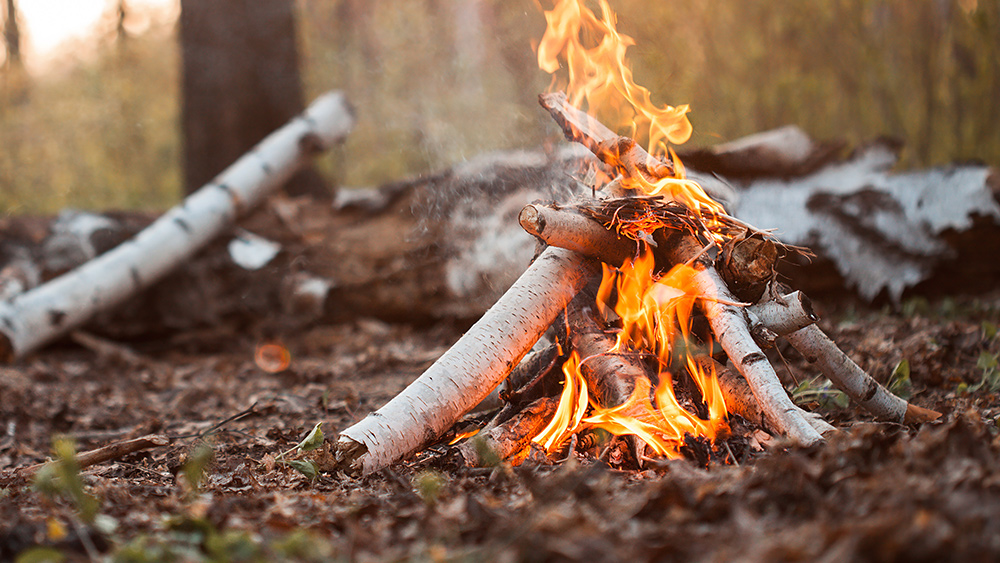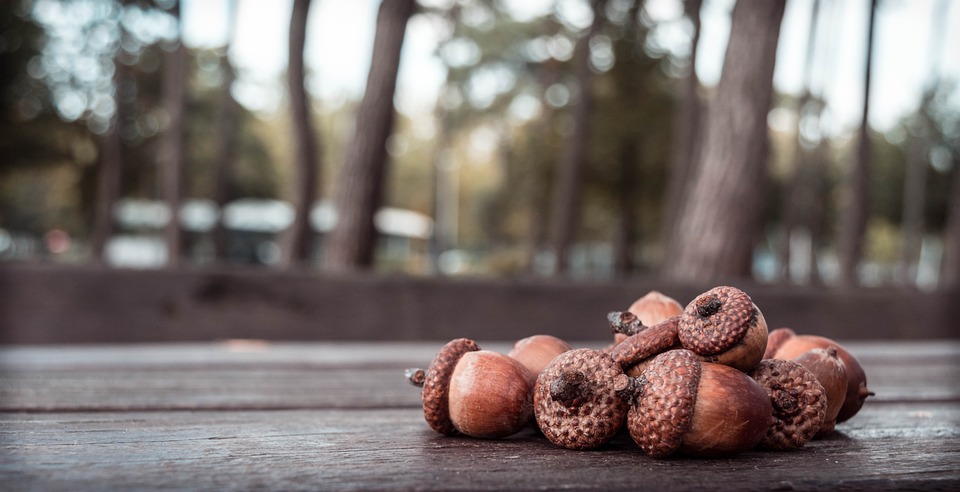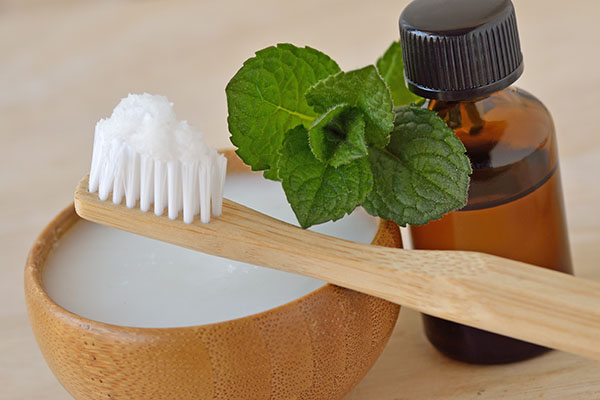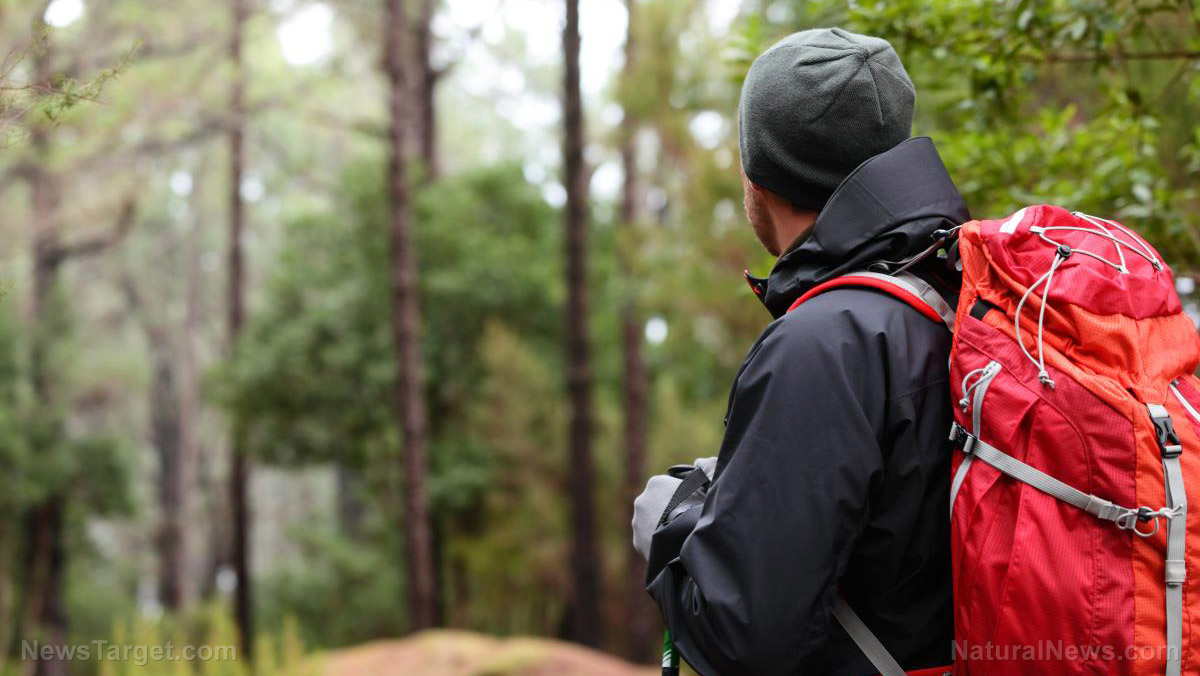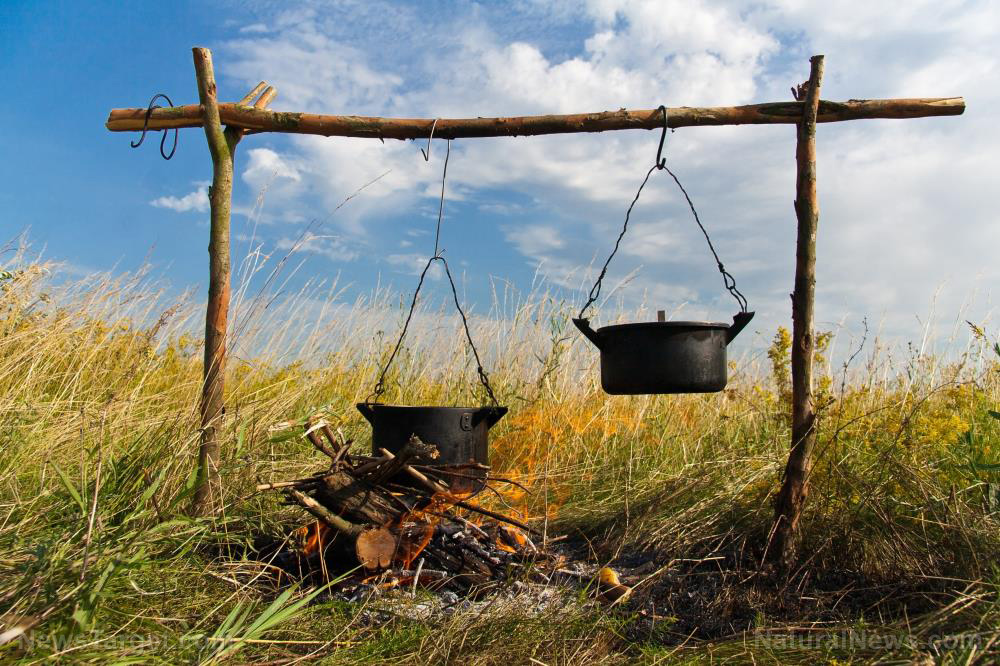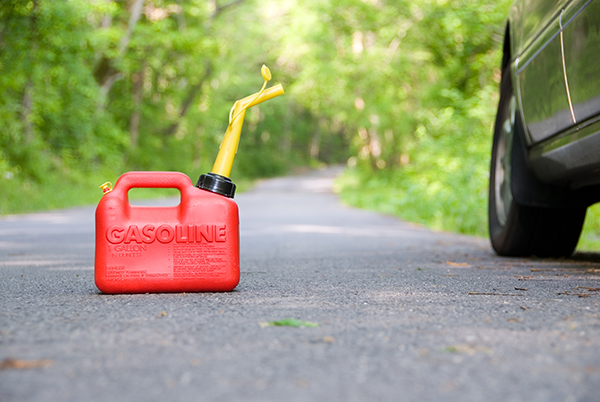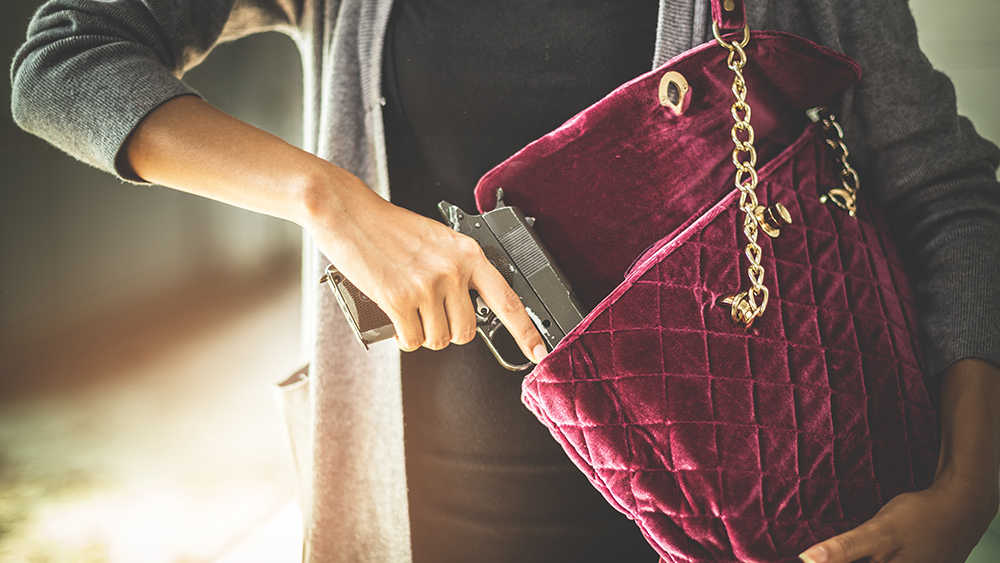Food supply 101: How to grow food for your stockpile and be more self-sufficient
05/10/2023 / By Zoey Sky

In a recent episode of the “Health Ranger Report,” host Mike Adams talked to guest Marjory Wildcraft about various home gardening tips and how to be more self-sufficient.
Who is Marjory Wildcraft?
Marjory Wildcraft is known as the female leader of the Survival and Preparedness movement.
In 2009, she founded The Grow Network, a community of like-minded individuals who valued modern self-sufficient living.
Wildcraft has a DVD series called Grow Your Own Groceries, which has over a half million copies in use by homesteaders, foodies, preppers, universities and missionary organizations worldwide.
She spends her free time experimenting with new ways to improve food production and sustainability.
The basics of growing food efficiently in a small amount of space
At the start of the episode, Wildcraft talked about her website, IGrowFood.com, for a limited-time free webinar on how to grow food in a grid down scenario where she talks about a three-part system that will help you start your home garden.
The webinar is for everyone, but Wildcraft said she designed it with beginners and older preppers in mind, especially those who may be out of shape.
She added that registering for the webinar and watching it will help preppers learn how to plan how to grow half of their food supply in a garden that is as small as three parking spots.
Adams added that even if you are new to gardening, you can grow your own food if you use the right materials, like homemade compost, and that “it’s almost impossible to fail if you have any clue what you’re doing.”
According to Wildcraft, “fertility and continuing the fertility” are also crucial to gardening. She added that DIY will be far superior to anything you can buy at the store, in the same way that organic, homegrown food is superior to fruits and vegetables from the store.
Wildcraft also talked about the importance of having good soil, particularly microbially- and mineral-rich soil.
When Adams complimented Wildcraft on her healthy, youthful appearance, she shared that her secret is “eating a lot of homegrown food for the past 25 years.” (Related: Learn how to freeze-dry and dehydrate food for long-term storage.)
While Wildcraft has just turned 60, she shared that she remains active and is even training in jujitsu. She even quipped that she is keeping up with younger men her age during their training.
Food contaminated by pesticides and mRNA
The pair also talked about how growing your own food at home can help you protect your family from store-bought food contaminated by pesticides and mRNA vaccines.
Aside from being contaminated by various chemicals, store-bought foods rarely provide any nourishment because they are grown in a very shallow kind of way, such as in soil lacking the right levels of NPK to produce nutritious produce.
Instead, Adams recommends growing fruits and vegetables in quality soil that is full of trace minerals if you want to harvest nutritious food.
Wildcraft also talked about how growing your own food can make you realize that organic produce tastes different because they are full of vitamins and minerals.
Stock up on supplies before SHTF
Wildcraft also advised people to invest in laying hens now for $25-30 per hen before prices increase, especially since egg prices are skyrocketing as the days go by.
She also recommends stocking up on calorie-rich foods, like Ranger buckets from the Health Ranger Store. If you’re not sure how much food to stock up on, target at least one million calories per person per year.
If you are on a tight budget, Wildcraft suggests saving up and going to Costco or Sam’s Club and buying 10 50-pound bags of beans and 10 50-pound bags of rice for about $750, which totals a million calories.
Even if you don’t eat a lot of rice or beans, when SHTF you can use the food in your stockpile to trade for other things.
Adams added that once you buy food for your stockpile, you should protect them from pests like rodents. Pack them in five-gallon pails and add oxygen absorbers to make them last longer.
Why you should get chickens for your homestead
If you have the budget, Wildcraft also recommends investing in a small flock of backyard chickens.
If you have six laying hens, one laying hen will lay about 250 eggs in a year because they will need some time off when it’s too hot or too cold. They also won’t be able to lay eggs every day of the year since they will need to mold their feathers.
But if you have six laying hens, you can expect about 250 eggs, which means you can get at least 1,500 eggs a year. If that’s too many eggs for your family, sell any extras when SHTF or trade them for other supplies.

Before disaster strikes, build the hens a coop and buy chicken feed for your hens.
Get dogs for added protection
If you are worried about your family’s safety when SHTF, get large guard dogs for your homestead.
For example, Wildcraft prefers medium-sized dogs because they will require less food than bigger dogs. Medium-sized dogs can also help scare off wild animals like raccoons or coyotes.
When food scarcity becomes an issue, Wildcraft added that dogs are natural predators and that they can go out and hunt if they have to.
The benefits of seed saving
The pair then went on to talk about seed saving, which is important for people who want to start a home garden.
Before SHTF, you should learn how to save seeds and have a local network for seeds because you might not be able to save all the seeds for all the different things you want to grow.
Fortunately, you can trade seeds with a network of fellow home gardeners or preppers. Wildcraft suggests getting involved with different Master Gardener groups or other prepping communities.
Starting a home garden also brings you one step closer to being self-sufficient, which is crucial if you want to survive in a post-SHTF world.
Even if you’re new to gardening, starting small and learning from your mistakes can help you become a more experienced gardener the more you keep learning and experimenting in your garden.
Move soil around, plant seeds and watch the sprouts grow. In time, you can harvest your crops to make smoothies and salads for your whole family.
Wildcraft warns that with all the trouble brewing on the horizon, you might not make it through this decade unless you start growing some of your own food.
While a lot of factors are out of your control, Wildcraft says that you can handle things that affect you directly, like addressing food supply issues by growing food for your family. It’s not too late to grow your own food, buy some seeds and get soil so you can build raised beds.
You can also get a chicken coop and build some rabbit tractors to provide food for your family.
Wildcraft says being self-sufficient is very “empowering and so enlivening” and that it is a transformative experience.
If you are too busy to start your garden, watch the webinar and make a list of things you need to get started.
Don’t waste money on cheap gardening supplies and tools from China. Instead, look for sturdy tools from auction sales or garage sales.
Adams closed the interview by talking about Brighteon University, which hosts educational videos, and how they can also start streaming Wildcraft’s content to help non-preppers before SHTF.
Go to Homegardeningnews.com for more tips on how to start growing your own fruits and vegetables right in your backyard.
Watch the full video below of “Health Ranger Report” with Mike Adams as he talks to Marjory Wildcraft about home gardening and tips for beginners.
This video is from the Health Ranger Report channel on Brighteon.com.
More related stories:
Rachel of “That 1870s Homestead” shares food canning lessons for beginners.
5 Food crops that can be grown year-round in container gardens.
6 Everyday items that you can use to fertilize your home garden.
Sources include:
Submit a correction >>
Tagged Under:
Brighteon, emergency food, food freedom, Food storage, food supply, gardening, gardening tips, green living, home gardening, homesteading, Marjory Wildcraft, off grid, preparedness, prepper, prepping, prepping tips, survival, tips
This article may contain statements that reflect the opinion of the author
Get independent news alerts on natural cures, food lab tests, cannabis medicine, science, robotics, drones, privacy and more from NewsTarget.com
Get independent news alerts on natural cures, food lab tests, cannabis medicine, science, robotics, drones, privacy and more from NewsTarget.com
RECENT NEWS & ARTICLES
COPYRIGHT © 2017 · SURVIVAL NEWS

